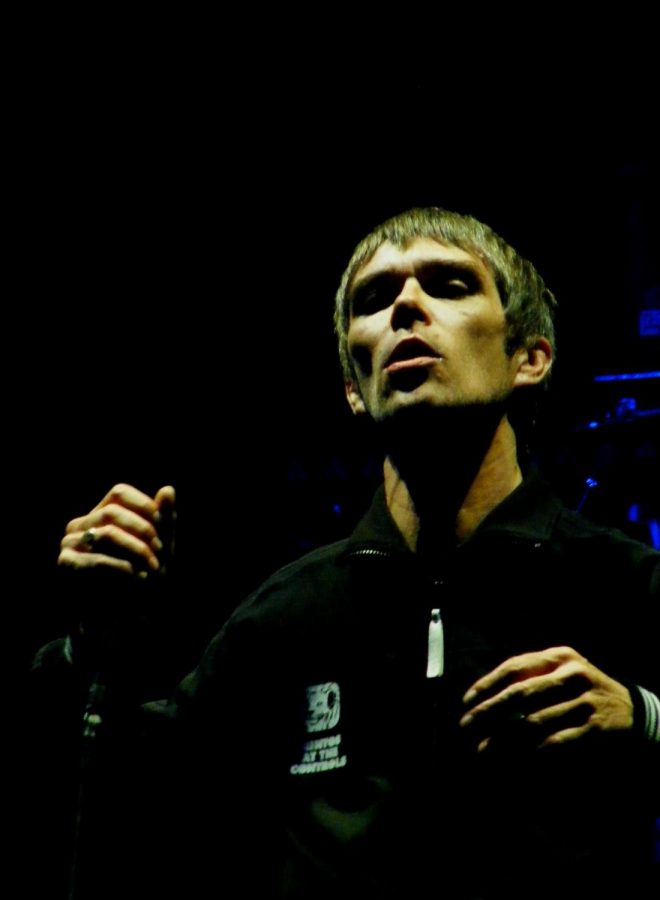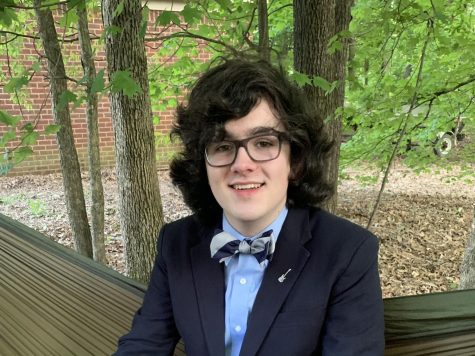‘Little Seed Big Tree’: the ugly face of the anti-mask, anti-vax movement
Ian Brown’s latest song aims to be an anthem for the anti-vax and anti-mask movement.
September 29, 2020
On Sept. 18, Britpop icon Ian Brown released his first song in a year in the form of “Little Seed Big Tree,” an attempted anti-mask and anti-vax rallying cry that only manages to be a humorous, amateurish pile of garbage perfectly fit for the nonsense conspiracies it tries to spread.
Brown rose to fame as the frontman of English dance-rock sensation The Stone Roses, whose highly-acclaimed self-titled debut album stands as a monolith of British songwriting. Since the band broke up in 1996, Brown has released a slew of solo albums to moderate success in the U.K. and made a name for himself in pop culture as a stereotypical, Mick Jagger-style rude British rock star.
Recently, as a wave of nationalist sentiment has swept the world following Brexit and Trump’s election, Brown has joined The Smiths’ Morrissey, Oasis’ Noel Gallagher and a number of other British rock icons in touting alt-right sentiments and conspiracies. He took to Twitter last week with a slew of absurd all-caps tweets that accuse Bill Gates of manufacturing the coronavirus so that he may tag us all with microchips in vaccines as a form of population control.
Now, I might believe that Bill Gates and his Foundation are more than a little bit neo-imperialist, but I’m not too sure that he wants to decide whether I am allowed to reproduce based on my worldviews.
As COVID-19 has swept the world into fear and lockdown, the chorus of people chanting “plandemic” has swollen to a breaking point. Brown’s “Little Seed Big Tree” means to give this misguided movement an apocalyptic anthem to stand behind and march forward to.
The only issue with that is that the song is really bad.
“Little Seed Big Tree” bears more resemblance to an Alex Jones InfoWars rant than a song. In a monotonous, three-note melody that tries too hard to be foreboding, Brown rambles through all the big conspiracies: the impending new world order, forced microchip implanting, chemtrails, 5G cellular radiation, etc. He carries on through three poorly-written choruses and verses for over five minutes with such awkward lines as “Get back in your basket / Get behind your doors ‘cause living here is drastic,” every one of which stinks of a childish sense of conviction and self-righteousness. Even the central metaphor of the song–that seemingly inconsequential restrictions of personal freedom by a central government can beget authoritarian control, as “just a little seed makes a big tree”–feels underdeveloped and clichéd, like something Brown read in an English tabloid the day before recording the song.
In fact, every aspect of the song suffers from this seeming lack of care. The minimal instrumentals sound like Brown listened to one Pink Floyd song, said “I can do this better,” and proceeded to record a single take after not laying a finger on his guitar since quarantine began. He matches his eccentric guitar playing with a similarly cringe-inducing song structure void of any form of flow or grace, particularly evident in the abrupt tempo change between the second verse and second chorus. However, I think the song’s “Na na na” ending takes the cake for the laziest, most uninspired musical construction on the track, but it was a difficult choice in a song with so many candidates. Whatever was left of the songwriting prowess Brown exhibited as part of “The Stone Roses” seems to have deserted him after it saw his latest tweets, as I imagine most of his casual fans have, too.
Science-denial culture has existed as long as science has in things like geocentrism, flat earth theory and moon landing skepticism. However, it has never posed so great a threat to human posterity and life itself as it does now, with the world poised at the precipice of climate disaster during a global pandemic. But, frankly, if this utter mess of a song represents the ugly face and rallying cry of the anti-mask and anti-vax movement, I don’t think we have that much to worry about.










Larmour • Mar 31, 2021 at 9:20 am
I disagreed with Brown’s rant but thought maybe the song itself would have some redeeming qualities. It actually made me want to smash my own guitar, and I’m pretty sure I”m dumber for having listened to the entire thing. I enjoyed your review immensely.
Jerry • Mar 22, 2021 at 11:30 am
Great song and great message.